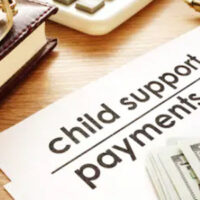When Will Courts Deviate From The Child Support Formula?

Any time a divorce involves children, there is a very good chance that one parent will have to pay child support to the other. In the majority of cases, a judge will use a child support formula to determine the amount of support payments. However, there are times when a judge will deviate from that formula and calculate a different amount. Below are some basics about how child support is calculated in Pennsylvania, as well as a few of the most common reasons judges have for deviating from the formula.
How is Child Support Determined in Pennsylvania?
Child support in Pennsylvania is income-based, meaning a judge will mainly consider the incomes of each parent when making decisions on child support. A judge will first consider the income of each parent to determine both the monthly income for each parent, as well as the combined income of the parents. A person’s individual monthly income is then divided by the combined income to determine how much each spouse contributes to the combined income.
After determining the individual and combined income for the parents, the judge will then look to the basic child support obligation guidelines to find the appropriate amount of support based on the parents’ income and how many children they have together. The appropriate obligation amount is then multiplied by the payer’s percentage of combined monthly income to determine the child support obligation amount.
When will a Judge Deviate from the Formula?
Judges have a great deal of discretion in child support matters. They have the power to deviate from the formula, either because the costs of the child increase or because the parent obligated to pay has unique financial needs. The Pennsylvania Statutes outline certain instances in which a judge may deviate from the standard child support formula. These include:
- When the parent paying support has unusual fixed obligations or unusual needs,
- When the parent paying has other support obligations,
- When there is additional income in the household of the recipient,
- Children are of certain ages,
- Assets and liabilities of both the payer and recipient of support,
- Medical expenses that health insurance does not cover,
- Standard of living of the spouses and their children, and
- Any other relevant factor, including the best interests of the children.
Judges typically will not deviate from the child support formula on their own, or at the very first hearing. If you think you will be obligated to pay child support after your divorce, you must argue the relevant factors that would make a deviation appropriate and provide evidence to prove your case.
Our Family Lawyer in Montgomery County Can Help with Your Case
If you are going through a divorce that involves children, you should speak with a Philadelphia family lawyer that can advise on the specifics of your case and give you the best chance of a positive outcome. When you need sound legal advice, call us at the Law Offices of Lauren H. Kane at 215-918-9453 or contact us online to schedule a consultation.
Resource:
legis.state.pa.us/cfdocs/legis/LI/consCheck.cfm?txtType=HTM&ttl=23&div=0&chpt=33&sctn=1&subsctn=0
